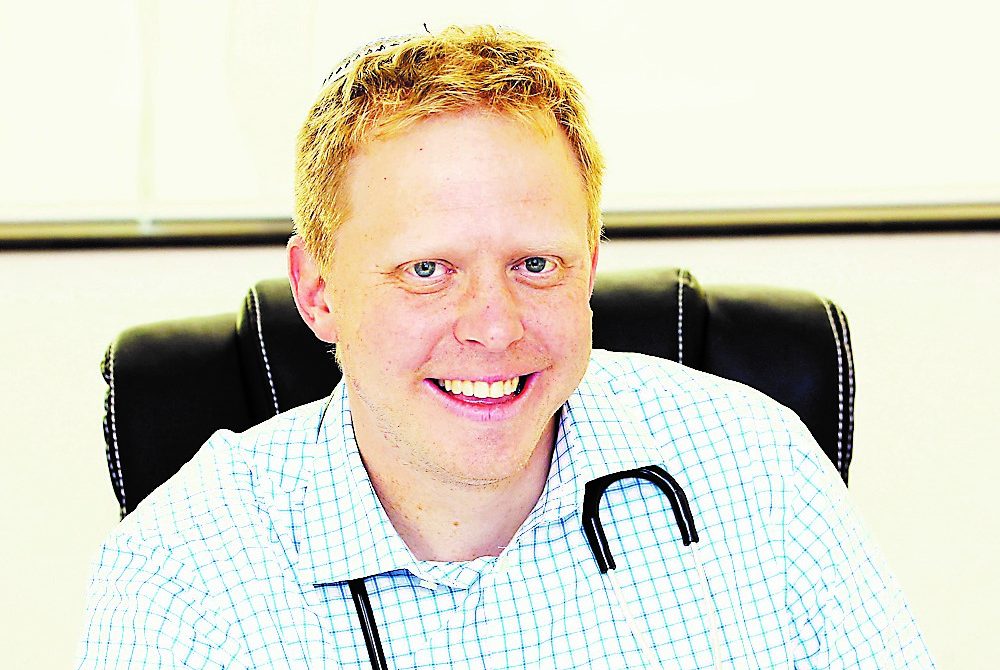
News

Pandemic clears path to e-medicine
A couple of years ago, a telephone call to your GP was a pre-emptive stab at whether you were on the right track with a problem. It was an unscheduled and often inconvenient effort that opened a small window for any meaningful assessment or treatment. The invent of e-medicine technology and the 2020 advent of COVID-19 has fast changed this reality.
I have learnt through my developing clinical career that medical professionals are conservative by nature. This is a virtue to be extolled from a patient-care perspective. When it comes to making decisions about how sick a patient really is, whether to investigate a patient, and even which medicines to prescribe, doctors have felt that a good phone call with even a conversive patient just doesn’t cut it.
Yet, technology has progressed, and the prospects of telemedicine and virtual consultations have repeatedly knocked on the door. Then, COVID-19 hit us, and forced doctors and patients to embrace this new modality. It’s so reassuring to note how much e-medicine technology is now enabling us to achieve.
The first modality that is increasingly being implemented by GPs is the Electronic Health Record (EHR). Gone are the days of fumbling with cumbersome files that are illegible even to those who have written them! I started my GP practice with an EHR eight years ago, and I haven’t looked back. As managed healthcare companies pour resources into software development, EHR platforms have grown incredibly in capability. The developers of the software I use cleverly embraced a few GPs in their journey of research and development.
Five years ago, I could only save my patient notes on a computer. Now, I can access clinical notes, blood results, radiology, referrals, and even account information from any device on the cloud anywhere. That enables me to offer patients informed e-medicine with great flexibility, even when I’m not in the office.
Simple messaging, audio, and video platforms have been taken up by GPs across the country to treat patients in the pandemic at a safe distance. From sophisticated (but somewhat cumbersome) systems like Discovery’s DrConnect to everyday systems like Facebook’s WhatsApp, doctors are able to speak to their patients live, and often adequately assess and guide them.
All over the world, COVID-19 patients are primarily being managed well at home, and telephone and video consultations have enabled that. In my practice, we’ve followed suit. Thankfully, we’ve guided more than 100 patients to recover from COVID-19 virtually, and have admitted only four on the phone.
An important factor to weigh up in this discussion is the impact of screen visits on the patient-doctor relationship. We must first remember that the barriers of time and transport in everyday life often prevent patients from engaging with doctors altogether. So, some relationship is better than no relationship. Second, research has shown that the “barrier” of a screen has helped patients to be more honest about their lifestyle habits with their doctors. This improves clinical outcomes, and may even enhance the patient-doctor relationship in the long run. It’s much easier to tell your doctor that you’re still smoking on the phone than in person.
I must comment, though, that as is shown by the effects of the Zoom lives we now lead, nothing replaces real human interaction. To my mind, reducing patient-doctor interaction exclusively to a screen leaves much to be desired in the long run.
I vividly remember one of my professors at medical school teaching me that ‘if you don’t have a good idea of the diagnosis after taking the history – before touching the patient – you’re not practicing well’. This speaks volumes for e-medicine. Contrary to common misconception, a Future Health Index (FHI) showed that a third of South African doctors say their patients reported more accurate diagnoses with e-medicine versus traditional consultations. This may be because more time is spent taking a thoroughly thought-out history.
Where do the problems with e-medicine lie? Some medical problems need a pair of experienced clinical hands to be solved. For example, I consider how concerned I am about a patient having acute appendicitis by his/her physical response to my palpating (pressing) on his/her abdomen. You cannot press an abdomen through the greatest computer screen!
GPs are also struggling with remuneration of teleconsultations. Illogically, medical aids pay a lower rate for tele-consultations than face-to-face consultations, even though the clinical skills needed to make accurate diagnoses on the phone are greater. Patients’ medical aids are often out of funds, and trying to recover debt from patients who haven’t physically visited the rooms is expensive and time consuming. E-medicine will need to be supported financially as committedly as it is technologically if GPs are to be motivated to embrace it fully.
Another stumbling block in the evolution of this exciting medical space has been regulatory authorities. The Health Professions Council has always prohibited new doctor-patient teleconsultations – until COVID-19 hit. Now, out of necessity, it has “temporarily” allowed a patient who has never met a doctor to “meet” him/her on the phone. If the future of medicine beyond this pandemic is tele-medicine, making this modality permanent will need to be seriously considered.
As I leave the comforts of my home today and enter my practice to solve one clinical problem after another, I know that my day will be mixed with traditional consultations and these new-age telemedicine consultations. Instead of shying away from telemedicine, I choose to embrace it. It may still be fraught with complexity, but its strengths are certainly providing our community with far more gains than the losses its weaknesses are causing. As doctors, we will continue to strive to ensure that tele-medicine develops well on all fronts so that it supports patients, doctors, and ongoing great clinical care.
- Dr Daniel Israel is a family practitioner in Johannesburg.










